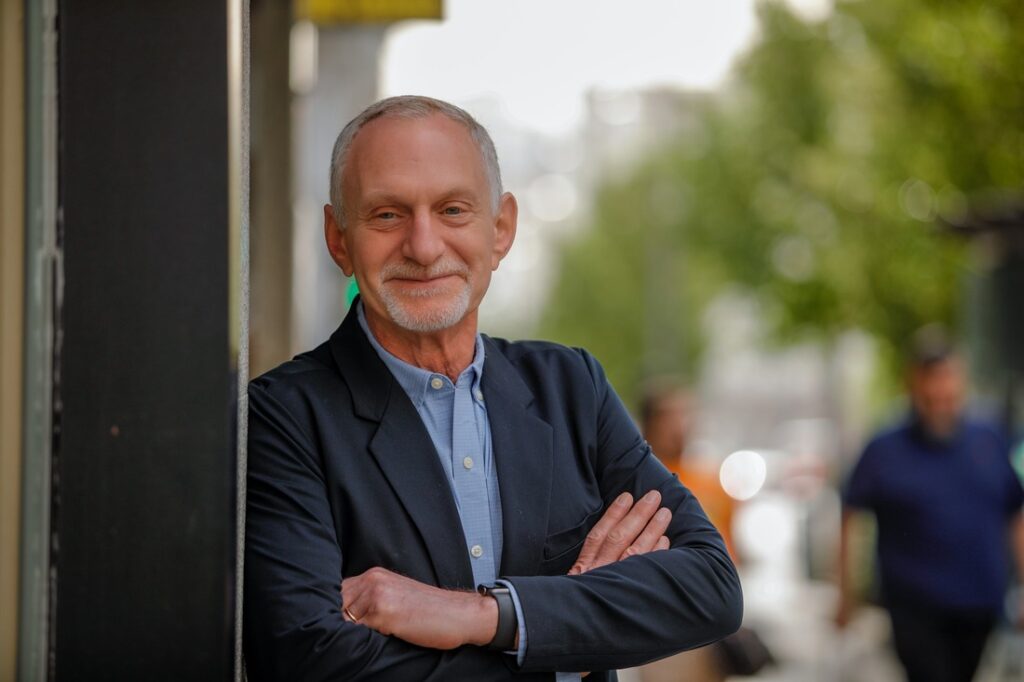An interview with Robert Waldinger, M.D., director of the long-running Harvard Study of Adult Development
Achieving a good balance between work and home life sometimes seems impossible. But one decades-long study explores on how people try to make it work and some of the decisions they regret in this area.
To find out more, we spoke to Robert Waldinger, M.D., a clinical professor of psychiatry at Harvard Medical School, director of the Harvard Study of Adult Development and a Zen priest. He leads a psychotherapy teaching program at Massachusetts General Hospital and writes about healthy human development. His TED Talk on happiness has more than 47 million views.
This interview has been edited for length and clarity.
SUCCESS+: Can you share any research about work-life balance and its impact on our lives?
Robert Waldinger, M.D.: The Harvard Study of Adult Development is the longest study of the same people that’s ever been done. We started with some disadvantaged kids from Austin’s inner city and some undergrads, followed them all the way through their lives, brought in their spouses and brought in their children. What was unusual was [being] able to study people again and again their whole lives. We’re in our 86th year. It started in 1938.
When people hit their 80s, we asked them to look back on their lives. [We asked], “What do you regret the most?” and “What are you proud of?” Many people regretted spending too much time at work and not enough time with people they cared about.
The other interesting thing is many women said they wish they hadn’t worried so much about what other people thought. In terms of work-life balance, when people look back, they say, “I probably didn’t need to work that hard.” There’s this saying that I really like: “20 years from now, the only people who will remember whether or not you worked late are your children.” True. We get all caught up in this work stuff.
That said, one of the things we found was that a lot of people were very proud of their work and particularly proud of their relationships with people at work. Some would say, “I was a good boss, a good mentor or a reliable part of the team.” When people talked about work, they wouldn’t say, “I made all this money,” or, “I led this big company,” although some of them did. It was often about their relationships.
S+: You’re focused on what makes a good life, highlighting the importance of relationships. How does work-life balance factor into the equation of having a good life?
RW: The truth is you can’t have it all. We always get this message: “You can have it all!” Right? But there are only 24 hours in a day. So, it really means deciding. What are the things you care about? How are you going to make compromises because you can’t have it all? For example, my career isn’t nearly as developed as some of my colleagues. When my kids were growing up, I didn’t go out in the evening. I didn’t work much in the evening. I spent a lot of time with my kids because I really wanted to do that. Now, my kids are grown and gone. I can work as much as I want. But back then, it was a conscious choice.
I’m not saying I was virtuous. It was just what I wanted to do. Also, it’s always a work in progress. It’s not like you get it figured out and then you’re done. Because stuff is always happening. You’re getting a promotion or getting asked to move across the country, and you have to decide if it’s worth it for everybody. Work-life balance is a continual practice rather than a goal you reach.

S+: Does work-life balance change as you go through different stages of life?
RW: If you’re lucky. We hope people have the flexibility to do that—in their work lives and in their minds. Because if you’re a workaholic, you’re a workaholic no matter what else is going on in your life. But what we hope for is the kind of flexibility to say, “OK, now, I’m going to cut back on work because I’m going to devote more time to this other thing I really care about.”
Work-life balance implies we have a choice. And, sometimes, people’s jobs just won’t let them make choices like that. They have to really struggle to make ends meet, working two or three jobs. So, for them, they can say, “Yeah, work-life balance sounds great, except I have to pay the bills. I have to feed my family.”
S+: How can we reframe the idea of work-life balance, so it looks different in how we talk about it or think about it?
RW: Work-life balance is highly individual. And there’s also workplace culture. Some workplace cultures can support people being able to have a private life and take care of their families, and some workplace cultures don’t do that. Think about some of these consulting firms that basically say, “You’re an indentured servant, and we’re going to pay you a ton of money, and you’re going to have no life.” That’s a choice. Just give up your life, right?
One of the things they’ve done in medicine is start making the hours less crazy… One of the reasons is they find that if we train young doctors to be bad at taking care of themselves, to have no private life, then they’re bad at taking care of patients. You cannot take care of other people if you don’t take care of yourself.
S+: Since work-life balance is very individualized, what are the key factors that contribute to working toward a healthy balance?
RW: Self-care, first of all. Getting enough sleep, eating well, not being obese, getting regular exercise. I know, I sound like your grandmother. But what we found in our study is that the people who did those things lived, on average, 10 years longer than the people who didn’t. So, it really matters.
Self-care is huge. Not being lonely. Having something to look forward to each day. Is the day just a slog and you’re just getting through [it], or are there things built in that you look forward to? It doesn’t mean that everybody has to love their job. It means that maybe you can cultivate some relationships in your job, find friends in your job, find things you enjoy about it, even if you don’t love making widgets.
S+: What advice would you give to those who work in jobs that lack meaning or fulfillment?
RW: At work, see if connecting with people might give you some sense of meaning. If you can find even just one friend at work, you want to show up.
S+: For those who might be feeling overwhelmed (such as new parents) is there a better goal to strive for than work-life balance during this particularly challenging time?
RW: Look for mutual support. That’s why moms’ groups can help with both tangible support and emotional support. Even online communities can help. It doesn’t always have to be in person. Otherwise, it’s so isolating. People who are marginalized for any reason, they’re lonelier. So, if you can do online stuff with people who are more like you or in the same situation, it makes a difference.
S+: What habits should people cultivate for better balance?
RW: Connect more with people because that usually makes people happier, and it’s more energizing. You don’t necessarily have to add time. If you commute, instead of just [scrolling] on your phone, call or text somebody you want to stay in touch with. If you’re at work, have lunch with people instead of eating alone. If you go to the gym, go with somebody. It’s also a much bigger incentive to do it. Combine social connection with something you would do anyway.
Many of us feel a little shy about that. It feels safer just to stay in our little cocoon. They’ve done studies on this [and found that] people are way happier when they overcome that little bit of resistance and connect with others. One of the things they find is that peripheral relationships are really good, even for your career. So, broaden your social network, even if you’re just friendly and talk to different people. The people you know less well are the ones more likely to find you your next job or your next opportunity because they have networks that are farther outside of your [own].
S+: What’s one key takeaway you want SUCCESS+ readers to remember about work-life balance?
RW: I guess that it’s very individual. It’s particular to you and to your time of life…. Be sure to customize it. Nobody else’s work-life balance is going to be right for you exactly. So really check in with yourself about it. There isn’t a formula—and that’s really OK.
Learn more about Dr. Waldinger and his work at www.robertwaldinger.com and www.adultdevelopmentstudy.org.
This interview appears in the November 2024 issue of SUCCESS+ Magazine. Photo courtesy of Robert Waldinger






